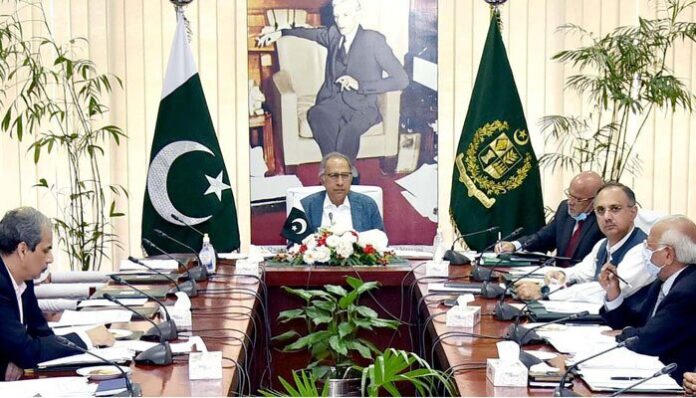The cabinet’s economic decision-making body on Thursday did not approve a subsidy of Rs9.5 billion under the prime minister’s industrial package that the Power Division sought to pick the difference between peak and off-peak electricity rates.
The Economic Coordination Committee (ECC) of the cabinet was not sure about the base of the Rs9.5 billion subsidy claim for the period November 1, 2020 to April 30, 2021 while some of its members forcefully opposed any subsidy, official sources told Pak Revenue.
Electricity will be sold to industrial consumers at Rs12.96 per unit, excluding the impact of quarterly tariff adjustments.
The ECC’s special meeting was called but without any homework by the Power Division, highlighting serious governance issues and the fact that important decisions even at prime minister’s level were being made without doing basic research work.
Prime Minister Imran Khan had announced a reduction in the electricity rate for industrial consumers on incremental consumption while also announcing an end to peak and off-peak electricity rates for the industrial consumers, only.
Peak and off-peak rates had been introduced many years ago when the country was facing electricity shortfall. But the government is still charging these rates when around 10,000 megawatts of electricity is surplus for domestic, commercial and industrial consumers.
After the prime minister’s announcement, the Cabinet Committee on Energy (CCOE) on November 2 approved the end of off-peak higher rates for industrial consumers from November 2020 to April 2021. The federal cabinet on November 6 ratified the CCOE decision.
However, the Ministry of Finance in its statement, issued on Thursday after the ECC meeting, gave the impression as if the Power Division had sought the ECC’s approval for ending the peak electricity rates.
“The Power Division presented the case for abolition of Time-of-Use tariff scheme for industrial consumers to spur industrial activity amid the Covid-19 pandemic by removing the distinction between current system of peak and off-peak hours as part of the industrial support package,” stated the Ministry of Finance.
The ECC accorded, in principle, approval to the proposal regarding amendments to the respective SROs both for ex-Wapda distribution companies and K-Electric to charge off-peak rates against peak hours, said the finance ministry.
“The abolition of peak and off-peak tariff structure would be implemented wef November 1, 2020 till April 30, 2021,” stated the official statement. The finance ministry’s handout was completely silent on the question of subsidy and the debate that took place in the meeting.
Sources said the Power Division had claimed around Rs9.5 billion in subsidy for six months but it could not satisfy the ECC members about the base of numbers. Prime Minister’s Adviser on Institutional Reforms Dr Ishrat Husain and Prime Minister’s Special Assistant on Revenue Dr Waqar Masood Khan were against giving subsidies.
ECC members were of the view that there would not be any subsidy requirement and any additional financial needs could be met by consequent reduction in the idle capacity payments to power plants. The country paid Rs840 billion in idle capacity charges to the power producers in the last fiscal year.
There was also concern that the lack of subsidy could add to circular debt, which had almost doubled during the Pakistan Tehreek-e-Insaf (PTI) government’s tenure to Rs2.350 trillion by the end of June this year.
The CCOE had last month decided that the abolition of peak and off-peak structure would be implemented only till April 30, 2021 and a review would be carried out by March 31 for its continuation or otherwise beyond April 2021. It decided that the expected impact on circular debt would be evaluated in light of actual consumption by the industrial sector and presented to the cabinet in the forthcoming meeting. The actual impact on circular debt will be reported to the CCOE on a monthly basis.
The National Electric Power Regulatory Authority (Nepra) on Wednesday approved the end of peak tariffs for industrial consumers for six months but it too raised the question of subsidy. Thus, it decided to evaluate its impact on the circular debt in light of actual consumption data of the industrial sector on a monthly basis, Nepra stated.
Nepra approved the off-peak Rs12.96-per-unit proposal for peak hours too along with the applicable quarterly adjustments with effect from November 1 till April 30, 2021 and the difference would be picked by the government as subsidy, according to the Nepra decision.



